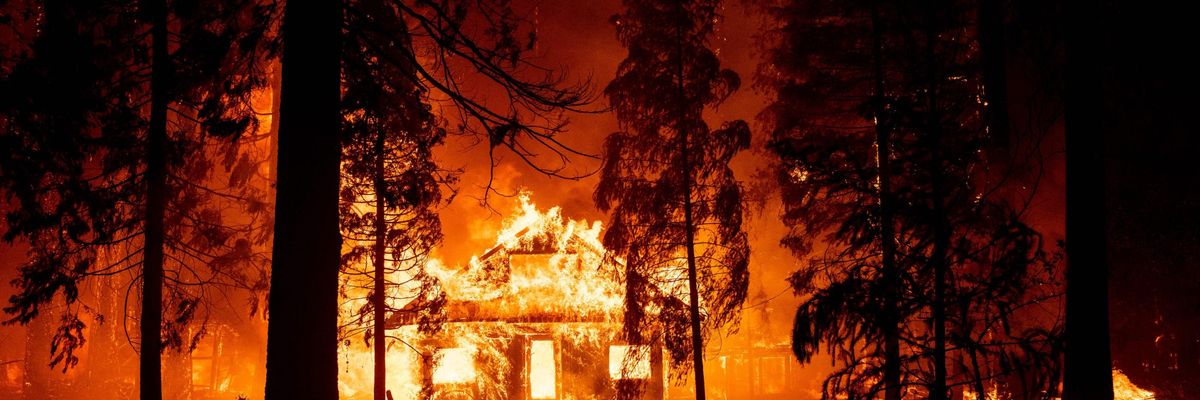The World Meteorological Organization warned Monday that the planet now faces a 50% chance of temporarily hitting 1.5degC of warming above pre-industrial levels over the next five years, another signal that political leaders--particularly those of the rich nations most responsible for carbon emissions--are failing to rein in fossil fuel use.
"For as long as we continue to emit greenhouse gases, temperatures will continue to rise."
In 2015, by comparison, the likelihood of briefly reaching or exceeding 1.5degC of global warming over the ensuing five-year period was estimated to be "close to zero," the WMO noted in a new climate update. The report was published amid a deadly heatwave on the Indian subcontinent that scientists say is a glimpse of what's to come if runaway carbon emissions aren't halted. Thus far, the heatwave has killed dozens in India and Pakistan.
Signatories to the Paris climate accord have agreed to act to limit the global average temperature increase to well below 2degC--preferably to 1.5degC--by the end of the century. Climate advocates have deemed the 1.5degC target "on life support" following world leaders' refusal to commit to more ambitious action at the COP26 summit in Glasgow late last year.
"We are getting measurably closer to temporarily reaching the lower target of the Paris Agreement," Petteri Taalas, the secretary-general of the WMO, said in a statement Monday. "The 1.5degC figure is not some random statistic. It is rather an indicator of the point at which climate impacts will become increasingly harmful for people and indeed the entire planet."
"For as long as we continue to emit greenhouse gases, temperatures will continue to rise," Taalas added. "And alongside that, our oceans will continue to become warmer and more acidic, sea ice and glaciers will continue to melt, sea level will continue to rise and, our weather will become more extreme. Arctic warming is disproportionately high and what happens in the Arctic affects all of us."
Dr. Leon Hermanson, a climate expert at the U.K. Met Office who led the WMO report, stressed that a short-lived breach of the 1.5degC threshold would not mean that the world is guaranteed to fall short of the Paris accord's most ambitious warming target, which climate experts and campaigners have long decried as inadequate.
Such a breach, however, would "reveal that we are edging ever closer to a situation where 1.5degC could be exceeded for an extended period," said Hermanson.
The WMO's latest research also estimates that there is a 93% chance that at least one year between 2022 and 2026 will be the warmest on record. Currently, 2016 and 2020 are tied for the top spot.
Even if global warming is limited to 1.5degC by 2100, countless people across the globe will still face devastating heatwaves, droughts, and other extreme weather, with the poor facing the worst consequences.
Meanwhile, key ecosystems could be damaged beyond repair in a 1.5degC hotter world. One recent study found that 99% of the world's coral reefs would experience heatwaves that are "too frequent for them to recover" if the planet gets 1.5degC warmer compared to pre-industrial levels.
Scientists behind the latest Intergovernmental Panel on Climate Change (IPCC) report cautioned last month that if there's to be any hope of keeping warming to 1.5degC or below by 2100, "it's now or never."
"Without immediate and deep emissions reductions across all sectors, it will be impossible," said Jim Skea, co-chair of IPCC Working Group III.

